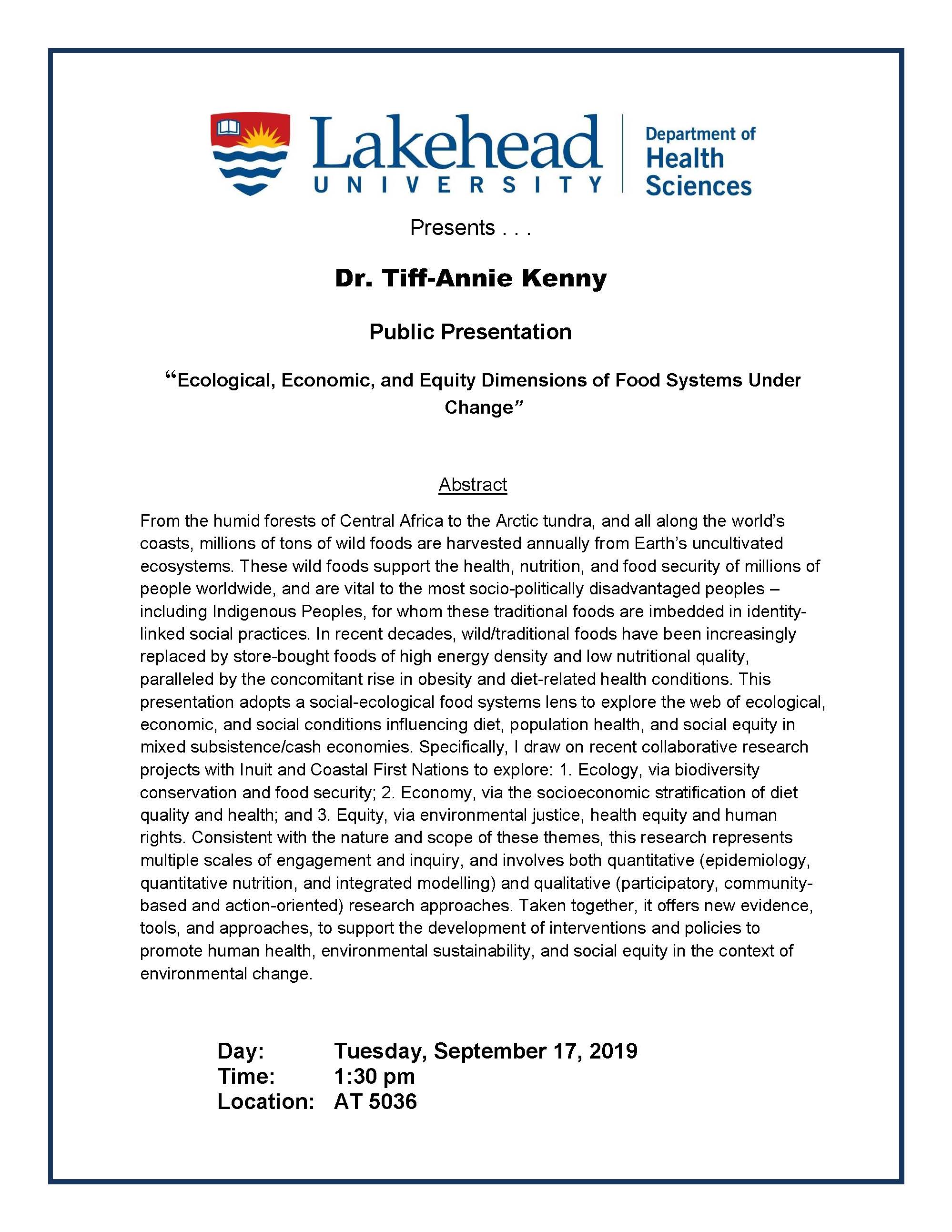Tier 2 Canada Research Chair, Social-Ecological Determinants of Health and Wellbeing

Dr. Tiff-Annie Kenny, PhD, CIHR Banting Postdoctoral Fellow, Faculté de médecine de l'Université Laval
Public Presentation
"Ecological, Economic, and Equity Dimensions of Food Systems Under Change"
Date: Tuesday, September 17
Time: 1:30 pm
Location: AT5036
From the humid forests of Central Africa to the Arctic tundra, and all along the world’s coasts, millions of tons of wild foods are harvested annually from Earth’s uncultivated ecosystems. These wild foods support the health, nutrition, and food security of millions of people worldwide, and are vital to the most socio-politically disadvantaged peoples – including Indigenous Peoples, for whom these traditional foods are imbedded in identity-linked social practices. In recent decades, wild/traditional foods have been increasingly replaced by store-bought foods of high energy density and low nutritional quality, paralleled by the concomitant rise in obesity and diet-related health conditions. This presentation adopts a social-ecological food systems lens to explore the web of ecological, economic, and social conditions influencing diet, population health, and social equity in mixed subsistence/cash economies. Specifically, I draw on recent collaborative research projects with Inuit and Coastal First Nations to explore: 1. Ecology, via biodiversity conservation and food security; 2. Economy, via the socioeconomic stratification of diet quality and health; and 3. Equity, via environmental justice, health equity and human rights. Consistent with the nature and scope of these themes, this research represents multiple scales of engagement and inquiry, and involves both quantitative (epidemiology, quantitative nutrition, and integrated modelling) and qualitative (participatory, community-based and action-oriented) research approaches. Taken together, it offers new evidence, tools, and approaches, to support the development of interventions and policies to promote human health, environmental sustainability, and social equity in the context of environmental change.

